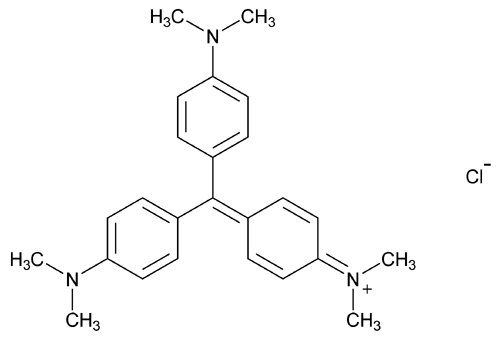
A coal-tar dye first produced in the 19th century, gentian violet is available over the counter as an antifungal agent.
Dermatologist Jack Arbiser has been a champion of the inexpensive drug gentian violet for skin diseases. He recently teamed up with collaborators in Brazil to find that gentian violet is active against leishmaniasis, a disfiguring skin disease found in many tropical and subtropical countries.
Caused by protozoan parasites and transmitted by sand flies, leishmaniasis’ most common form produces skin sores but can also affect the nose and mouth and even vital organs. The World Health Organization has identified Kabul, Afghanistan as a world hot spot for leishmaniasis.
In the journal PLOS One, Ana Paula Fernandes and colleagues at the Federal University of Minas Gerais showed that gentian violet and related compounds are active against Leishmania species in animal models.
Conventionallly, therapy for leishmaniasis has involved antimony compounds, but resistance is growing. More recently, clinicians have used the drugs miltefosine and amphotericin against leishmaniasis, but severe side effects have been reported.
“Because it has a http://www.troakley.com/ proven safety record, gentian violet might be a useful treatment that can be used in developing countries as well as by US troops serving in Afghanistan,†Arbiser says.
Arbiser also recently published a case report on the use of gentian violet, in combination with the immune modulator imiquimod, to treat melanoma.




